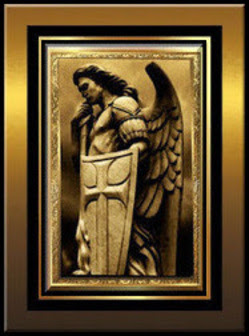P R I E S T E S S O F
D E L P H I
Meaning of Oracle [noun]
[Especially in ancient Greece]
A
female priest who gave people wise but often mysterious advice from
a god,
or the advice given.
Someone who knows a lot about a
subject and can give good advice.
No seer or diviner stood
higher.
No voice, civil or religious, carried
further.
No authority was more sought after or
more influential.
None. She quite literally had the
power to depose kings.
She was the true and only messenger
of the gods.
A R C H I A C T O R S O
O F A P O L L O
We cannot know his legendary head
with eyes
like ripening fruit.
And yet his torsois still suffused with brilliance from inside,
And yet his torsois still suffused with brilliance from inside,
like a lamp,
in which his gaze, now turned to low,
gleams in
all its power.
Otherwise the
curved breast could not dazzle you so, nor could
a smile run
through the placid hips and thighs
to that dark
center where procreation flared.
Otherwise
this stone would seem defaced
beneath the
translucent cascade of the shoulders
and would
not glisten like a wild beast’s fur:
would not,
from all the borders of itself,
burst like a
star: for here there is no place
that does
not see you.
You must change your life.
Rainer Maria
Rilke,
1875 - 1926
L I N K S
Oracle [N]
In the Old Testament used in every
case, except 2 Samuel 16:23 ,
to denote the most holy place in the
temple
( 1 Kings 6:5 1 Kings 6:19
23 ; 8:6 ).
In 2 Samuel 16:23 it means the Word
of God.
A man inquired "at the oracle of
God" by
means of the Urim and Thummim in
the
breastplate on the high priest's
ephod.
In the New Testament, it is used only
in the plural,
and always denotes the Word of
God ( Romans 3:2 ; Hebrews 5:12 , etc.).
The Scriptures are called
"living oracles" (Compare Hebrews 4:12 )
because of their quickening power ( Acts 7:38 ).







![Bible - Pure Cambridge Edition of 1611 [Pre Westcott and Hort Alterations]](https://blogger.googleusercontent.com/img/b/R29vZ2xl/AVvXsEgpBXGz8HUlzTpBWQq6JQeoOuqGvZkrXzKVJmYLG-wg0e-kwe7QfaTg7WsEdiiOGU5cQ-xrjyobbeyd_VK2x05VATm_K5Hw96Dz4WmjSyRZAGGkZKX5-gOEknAsaADx-ibDYpNV0MUvsnk/s263/B.jpg)





















